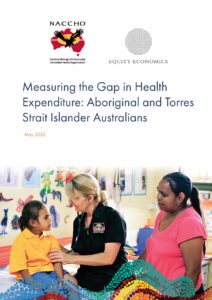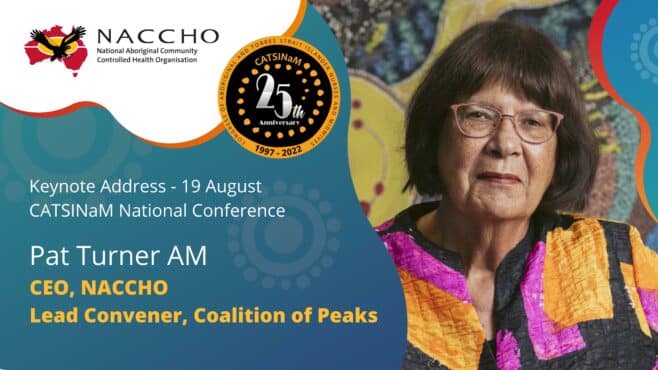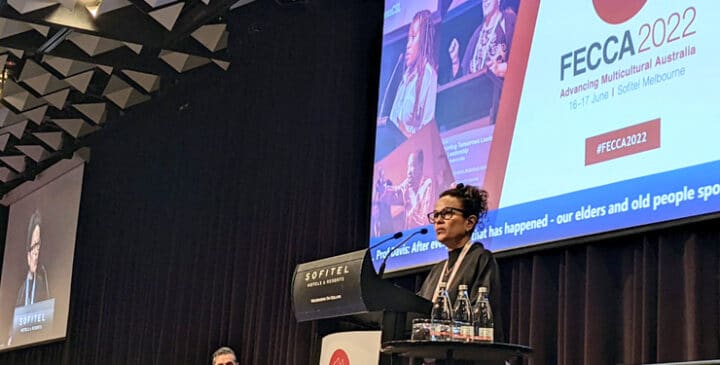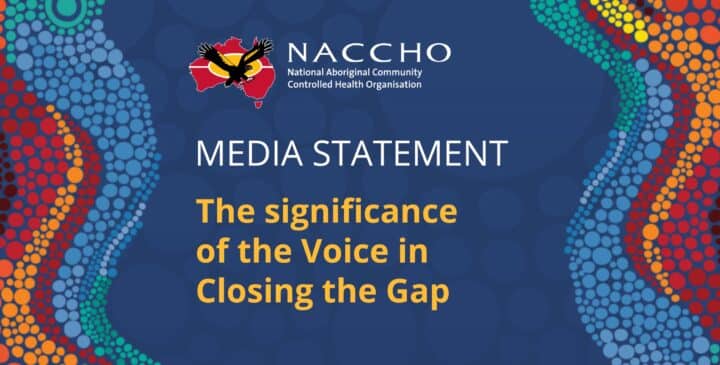
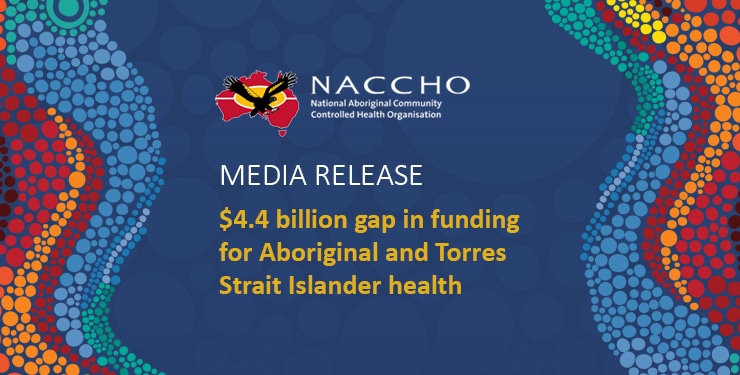
$4.4 billion gap in funding for Aboriginal and Torres Strait Islander health
An Equity Economics report commissioned, and released today, by the National Aboriginal Community Controlled Health Organisation (NACCHO) has identified a $4.4 billion gap in Commonwealth, State and Territory Government and private health expenditure.
The report’s findings are alarming and highlight some of the obstacles to improving the health and life expectancy of Aboriginal and Torres Strait Islander people. Conservative estimates indicate there is a gap of $5,042 in health expenditure per Aboriginal and Torres Strait Islander person.
Pat Turner, CEO of NACCHO, said, ‘It is no wonder that Aboriginal and Torres Strait Islander people continue to live lives 8-9 years shorter than other Australians. It is no wonder that our children are 55 times more likely to die of rheumatic heart disease than non-Aboriginal children.’
The report’s calculations account for the burden of disease being more than twice the rate for the Aboriginal and Torres Strait Islander population than for the non-Aboriginal population, which translates to at least twice the cost-of-service provision.
Donnella Mills, Chair of NACCHO said, ‘I am disturbed by the findings of this report and how extensive the funding gap is. How can we improve the health and wellbeing of Aboriginal and Torres Strait Islander people when there is a $4.4 billion funding deficit? Structural reform and substantial funding investment is required and we have shown how this process can commence in our last pre-budget submission.’
Pat Turner said, ‘The Commonwealth has had the opportunity to fix its share of the funding gap in three big-spending budgets focused on stimulus measures during the pandemic. If it had invested in our sector, it could have delivered, at the same time, financial stimulus to the 550 local economies where our services are located.’
‘NACCHO calls upon all governments ahead of the election to close the funding gap for Aboriginal and Torres Strait Islander people.’
The full report can be accessed on the NACCHO website here.
